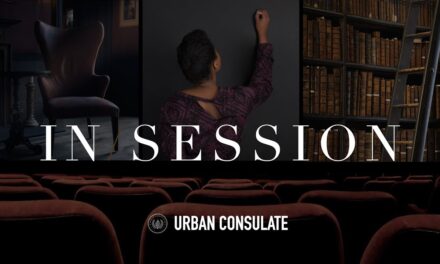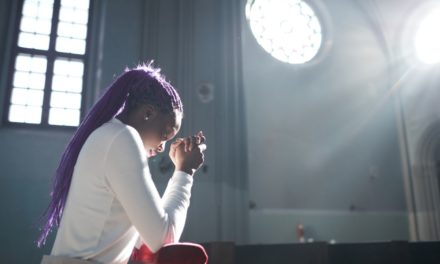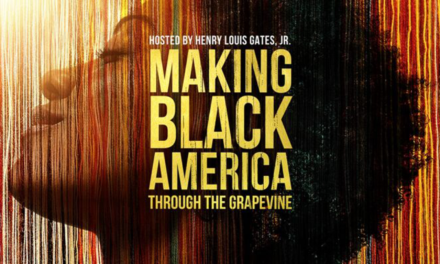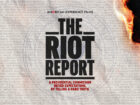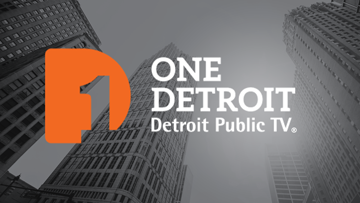“What we know as Black people, whether we get paid or not, we know we have to face these inequities.”—Yusef Shakur
Thanks to a grant from the Kresge Foundation, The Michigan Roundtable for Diversity and Inclusion is expanding its anti-racism work in the city of Detroit. Stephen talked about the roundtable’s plans with its new deputy director of strategy and innovation, Yusef Shakur.
Read full transcript
Stephen Henderson About this new position of yours with Michigan Roundtable for Diversity and Inclusion, how did this come about?
Yusef Shakur, Deputy Director, Strategy & Innovation, Michigan Roundtable For Diversity & Inclusion I’ve been working for the organization 4 and a half years. Prior to that, I had community connections in terms of them supporting some of our community initiatives. I think in terms of being able to push the organization to go deeper in terms of racial and social justice and being able to earn my keep as continue to develop as a leader within the city. And personally, through pursuits of continuing to get better to transformation as well as pursuing higher education. And opportunity presented itself and Steven, the board saw the potential and we seized the moment.
Stephen Henderson Go deeper, that’s a that’s a great phrase to describe what I imagine you’re trying to do here with this with this position. People who know you around the city know you’re a guy who’s about action and not just talking. And I suspect that that’s part of what you’re up to.
Yusef Shakur, Deputy Director, Strategy & Innovation, Michigan Roundtable For Diversity & Inclusion Absolutely, a thing in particular, look, before the era that we’re currently in is challenging ourselves to take a position of racial or social justice. Again, in particular black folks we’ve inherited a lot of inequities, and as a result we fought against it. A lot of other people, you know, in the current time, like this work is led by nonprofit, but what we know as black people, whether we get paid or not, we have to face these inequities. We have to figure out how to do it, so we’re trying to bring that type of mentality w whether you get paid for this or not, we have to change this. And this is this is bigger than what we can get paid for is just fortunate that someone was going to get paid for it. So being able to find that common thread in there. But also, Detroit is a predominately black city. The suburbs are predominantly white, and that heightens a lot of the contradictions that goes on. So being able to put ourselves in the ring to challenge those contradiction.
Stephen Henderson Talk about some of the things in the short term you would want to focus on in this new role.
Yusef Shakur, Deputy Director, Strategy & Innovation, Michigan Roundtable For Diversity & Inclusion So, currently what we’re doing is we’re pushing ourselves to take whatever, whatever role that we engage. We’re taking a position, a racial social justice position that is non-negotiable and also using critical race theory as a guide to how to how do we do the work. Over stating that diversity doesn’t mean that you’re anti-racist. That we’re showing up. being anti-racist, that we’re showing up dealing with the hard issues of poverty and so forth. Over stating that we’re, that we represent the most marginalized and the most marginalized, particularly is a reason are black people. But also create an opportunity to develop and build them up in terms of shifting what we perceive as power, as the stakeholders, seeing the people, those who are oppressed as the stakeholders, that their lives matter, that the equity of being here three or four generations of Detroiters matters. And so, the position that the community has that we built and also in the process of doing another one, so digging deeper within the hearts of the neighborhood and creating an opportunity to uplift those voices.
Stephen Henderson This is, of course, a moment where I feel like there’s more people paying attention to these issues than before now and now. I’m talking about non-black people. And of course, you have these constant reminders of how all of this is now that people can capture with their cell phones the kind of experiences that black people have all the time. How do you lean into that moment in this new world? What opportunity does that, does that give you?
Yusef Shakur, Deputy Director, Strategy & Innovation, Michigan Roundtable For Diversity & Inclusion So what, what we did was I had the great honor of graduating from University of Michigan School of Social Work in 2019, and there they they’ve incorporated was called (PODS) privilege, oppression, diversity and social justice. And we hear it clicks, it clicks in terms of because what we know is people say they want to have tough conversations, but in reality, they want to have soft, soft conversations. And so, to get to the challenge, we have to create discomfort. And a lot of times discomfort is for non-black people. And in helping to understand that, we have to examine the power of privilege and how it impacts oppression and to get to get an authentic diversity, we have to land on racial social justice. So, over studying that journey, over studying those roles. You know, there’s different expressways, but they interconnect. So even like you and I, you know we’re two black men, but we probably come from two different experiences. So, getting into the roots of what those different experiences to allow us to really value who we are. Because in reality when we step out, no one’s going to look at our differences. They just want to see two black men, but also, they accept us differently. And so, this is within the work, ignorance is something that we all uphold. But ignorance has become a way of life and so being able to uproot that ignorance as well as uprooting racism is the objective.
Stephen Henderson Yeah, I wonder what you think of the opportunity to not just take this message to young people, but to adults. I feel like it’s often more difficult to get these messages across to people who’ve been stuck in their ways for a really long time and maybe don’t think there’s anything wrong.
Yusef Shakur, Deputy Director, Strategy & Innovation, Michigan Roundtable For Diversity & Inclusion But they will impact people across racial, gender and social economics, is authentic. You know, just being very real. And also or substituting the word real for being vulnerable. Cause we think you’re being real; you’re being vulnerable and it’s not. So, the ability to be vulnerable is more education than anything. And I’ll just share two brief stories with you. I remember growing up in Manistique, Michigan, you know it snow in a day, it’s completely white up there, right. And I’m talking about the experience of growing up with abuse, when my mother was being abused by her boyfriend. And it was a little white kid in the back of the room. Had to be no more than about 13, 14, everybody disperses she’s in the back row crying. So, I’m like what was going on what’s wrong. He was like, man, when I grew up, my mother was experiencing the same thing. So, what that told me again what we’re taught, abuse only happens in black families, drug addicts only happen in black families. Or when I talk about my father being in prison, me meeting my father, there was a young man who was 17, 18 that he wanted to come back to my hotel, he wanted to talk to me. Like man, my father never told me, my mother never told who my father was, but I think he was mad at her. So again, these social issues that we face, they face to. But until we’re able to be vulnerable with ourselves and realize like this is a black and white issue, but it’s bigger than a black or white issue. And who created the opportunity for us not to see the human connection? Because the ills that we’re facing, not only are they threats to you and I as black people, but there are threats to humanity. And if we’re truly calling ourselves, human beings, then we need to transform ourselves to create a better space for those who are the most impacted and where we don’t also find ourselves on that road. And so, I think being authentic allows us to get to that position.
Stephen Henderson Yeah, so where do you start? It’s a new role, but as you point out, you’ve been there for some time. What’s first on your agenda
Yusef Shakur, Deputy Director, Strategy & Innovation, Michigan Roundtable For Diversity & Inclusion So first of agenda again, was going inside the organization and being able to revamp how we’re going to approach things, establishing the (PODS), looking at privilege, looking at oppression. I’m also, again openly saying that we as an organization, we’re anti-poverty, we’re anti-racist. You know, again we know a lot of white folks talk that, but, you know, when it’s time to show up, you know, because of their discomfort, they show up differently. And so being able to, like if we’re going to model change, we need to be the change and not just a slogan. So being able to internally hold ourselves accountable, also placing ourselves on the side of those who are the most oppressed and allowing them to lead us by engaging them in areas that helped transform them.
Stephen Henderson You know that internal focus is something that too many organizations aren’t really willing to do. What is it about the Michigan roundtable that you think leads them to say, hey, look, we understand we’ve got to look at ourselves.
Yusef Shakur, Deputy Director, Strategy & Innovation, Michigan Roundtable For Diversity & Inclusion So I’m blessed to be able to work with co-workers that already have been doing that work. Stacey Stevens, prior to me getting there, actually, the reason I am here is because of her ability as a white woman and looking at the privilege that she holds in that space to say, hey, we need another black person, we need another black woman or another black man, we need to break down these silos. Even though we’re doing the right stuff, we’re doing it wrong, because internally it’s not reflective of what our theories are. And so being able to have that and also know Steve who’s my boss, putting to continue to challenge him and put him in discomfort conversations in this kind of work and him not taking that personal. I would say like, this is bigger than anything that he can get paid for. And so, trust, as you know, doing this work we got to trust each other. And trusting each other is building real sustainable relationships in the barracks, in the barracks where we’re showing our ugly selves, because again, this work has existed before I was born. And the goal is for it not to exist after I’m passed, but we have to get to a point were having the confidence and faith, So the confidence and faith that they have in me I have in them. And also, just be honest with you, like if you told me growing up like this is where I would be, and I would be like, man you crazy. Like this is because this wasn’t the reality, but you know it shows you the power of God. It shows you the power of transformation, education and commitment to continue to do better. I think most, I mean, some people don’t agree with me, but I think most people do agree with is that I’m consistent, that I’m passionate and that I’m very sincere and authentic.

